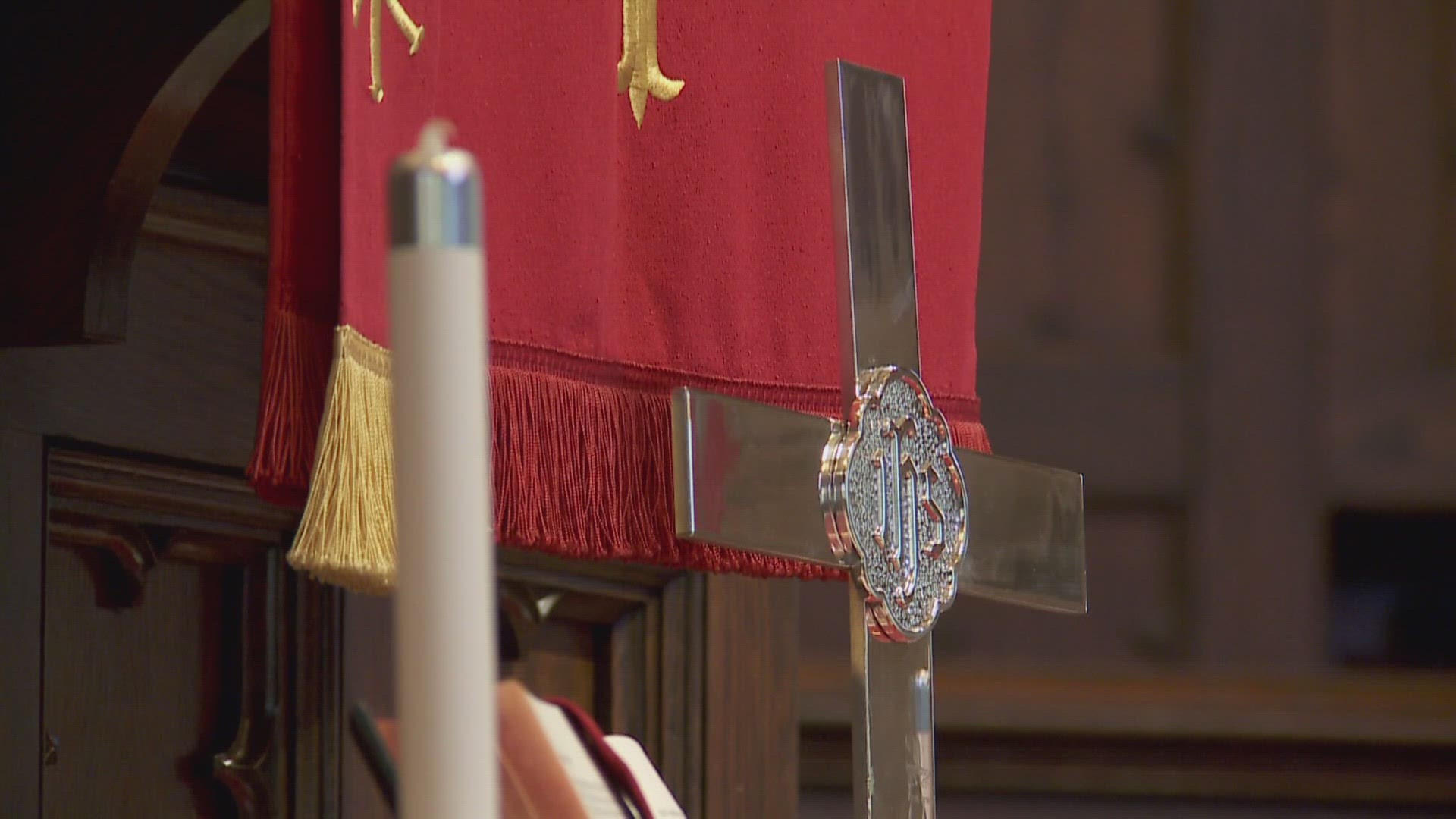KNOX COUNTY, Tenn. — The Knox County Board of Education is meeting Thursday to discuss and vote on several proposed changes, including allowing students to earn school credits for attending outside religious classes.
The proposals include whether to allow students who attend religious classes during the school day to earn elective credits, whether to change the schedule at which the board meets, and the whether to approve the 2023-2024 differentiated pay plan. They will also discuss receiving around $18.9 million in funds from the Tennessee Department of Education.
Additional information about some items on the KCS agenda is available below.
Knox County Schools will consider whether to allow students who choose to attend religious classes during the school day to receive credit as if they were attending an in-district elective course.
Currently, high school students can earn course credit for e-learning courses or distance learning classes taken outside of the school district. Students need to get written permission from their principal, and the institution providing classes needs to be accredited by the state or by an accrediting agency.
The student needs to pay for the course, and the original policy said credit would only be allowed for courses that "provide a final examination covering all terminal objectives of the particular curriculum framework of the Tennessee Department of Education."
The proposal would change the policy to allow students to earn an elective credit course for a religious class as long as the course is validated by a transcript from the provider. It would require KCSO and curriculum supervisors to evaluate the course "neutrally, without any test for religious content or denomination affiliation."
The class would need to be the same length of time as a block or class period. The course's syllabus would also need to reflect the course's requirements or materials used in the course. KCS would also need to evaluate the course's methods of assessment, and "it is expected that traditional assessments, such as tests and projects, will be utilized."
Providers will also need to make sure the course is taught by a certified teacher. KCS would need to approve a memorandum of agreement with the course as well, for it to be eligible for elective credit. The course would need to be taught off-site from KCS campuses, and students would need to get a signed student release form.
Steve Triplett (R - District 7) requested the board discuss whether its regular schedule should change to only meet once per month. Currently, the board meets twice per month — once for a work session to discuss proposals and ideas and again during a regular session to vote.
Critics of the proposal said it would prevent the public from having as much input on ideas. They would not be able to speak as much during public forums, and would not be notified about new proposals until soon before they appear on the agenda.
Knox County Schools leaders will discuss whether to approve a plan on how to pay different types of educators. For example, the proposal includes offering a signing bonus for "hard-to-staff subject areas of World Languages, Advanced Mathematics, Chemistry, Physics" as well as speech-language therapists, school psychologists, hearing specialists, vision specialists, audiologists and ESL educators.
The $5,000 bonus would be paid out in November and February, and teachers would need to stay with KCS for three years or else risk having to pay some of it back. They said around 94 teachers would benefit from the bonus.
The plan would also offer a stipend for new special education teachers — $7,00 paid out of three years. The plan also calls for offering tuition assistance in hard-to-staff subject areas — up to $1,200 per semester.
Six schools in KCS' Region Five are also in session for 16 additional days, requiring educators to be paid more.
It would also create compensation for special roles teachers can pursue, such as "instructional coaches" in numeracy, literacy, and social studies or for gifted and talented students. The base salary compensation would be an average of $76,700. Part of the salary would be paid for by federal grants.
Special education mentor coaches would get the same base salary compensation, but the school system would need to pay for it. They estimate seven educators would fill the role, and 155 would choose to try becoming instructional coaches.
Principals, assistant principals and assistant administrators in Region Five schools would also get a supplement of between $5,000 and $2,500.
The board will consider accepting a total of around $18.9 million from a range of state programs. For example, a chunk of the funds would come from the Title I-A program. It would be for around $14.9 million and would be used for regular instruction supplies and materials, as well as instructional support services.
Around $110,879 from the Title IA-D program would be used to help delinquent or neglected children. Around $2 million from the Title II-A program would provide instructional support services such as facilitators and professional development opportunities.
Around $1.2 million from the Title IV program would be used to provide a trauma-informed specialist to help students expose to adverse childhood experiences. It would also be used to provide other kinds of mental health services and to provide fee waivers for advanced placement courses and restorative intervention supports. They would also be used to improve digital literacy among students.

